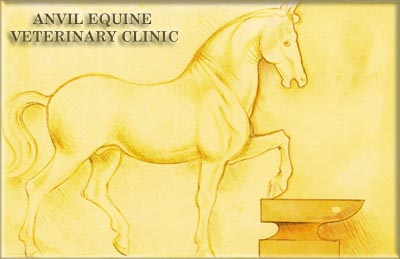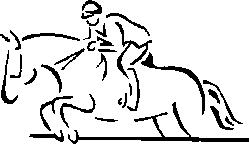 |
Arabian Lines would
like to thank Anvil Veterinary Clinic for keeping us up to
date with the Veterinary world . |
|
Equine Herpesvirus The Facts Equine influenza is a well known disease within the equine industry and most horses are protected against it; but have you ever heard of equine herpesvirus? Equine herpesvirus is also a very contagious respiratory disease in the horse. Your horse is constantly placed at risk when introducing him to many other horses. A high proportion of the horse population is believed to carry equine herpesvirus (EHV) so its important that you protect yours. There is currently only one vaccine available to give protection against the two most important of EHV, which are known as EHV1 and EHV4. EHV is not only considered to be one of the most common causes of viral respiratory infections, but it also causes abortion, stillbirth and foals with severe respiratory distress. EHV is highly infective. An infective virus is spread by being squeezed into the air and inhaled by other horses in the vicinity. EHV is also capable of surviving and remaining infective on horsehair for over a month. Clinical Signs
Horses become carriers of the disease once infected with EHV. However, they may not show signs of the disease, but can shed the virus and spread it to other horses. Excitement or stress often causes shedding, for example at a competition, travelling or mixing with new horses. Youngsters and foals are particularly at risk as their immune system is not fully developed. An EHV-infected horse will also be at risk of secondary viral of bacterial infections due to the fact that the natural immunity will be suppressed. How do vaccines work? Vaccines rely on the presence of the relevant antigens. These antigens are usually killed particles of the infecting virus or bacteria, and effective adjuvants, substances which safely enhance immunity. Strains of viruses can change with time so vaccines have to be continually developed and clinically tested before they gain licensing authority approval. You can see that EHV poses a potential hazard to your horse. Vaccination with Duvaxyn EHV 1,4 will provide your horse with the protection he deserves against this highly contagious disease and in addition with help limit the spread of EHV to other horses.
Anvil Vets: Cover clients based in Surrey, Sussex, Kent, Berkshire and East Hampshire 24 hours a day – 365 days a year. The Anvil team currently consists of 3 Veterinary surgeons – Alastair MacVicar (Principal), Mike Barrott and Liz Brown, supported by Dr David Platt who carries out our major surgery. Anvil also have 3 equine veterinary nurses, and an office support team of 3. The Clinic consists of a theatre and recovery room, an X-ray area with treatment facilities and stocks for the more difficult horses and procedures. With these and a wide range of modern equipment the clinic is now prepared for a wide range of diagnostic and treatment techniques. Anvil Vets: Anvil Equine Veterinary Clinic, Tuckmans Farm, Copsale, Horsham, West Sussex RH13 7DL Tel: 01403 731 213 Fax: 01403 733992 Email anvilvets@freeuk.com Return to Top |
If you would like to have an article included in this section then please send your article to editor@arabianlines.com
